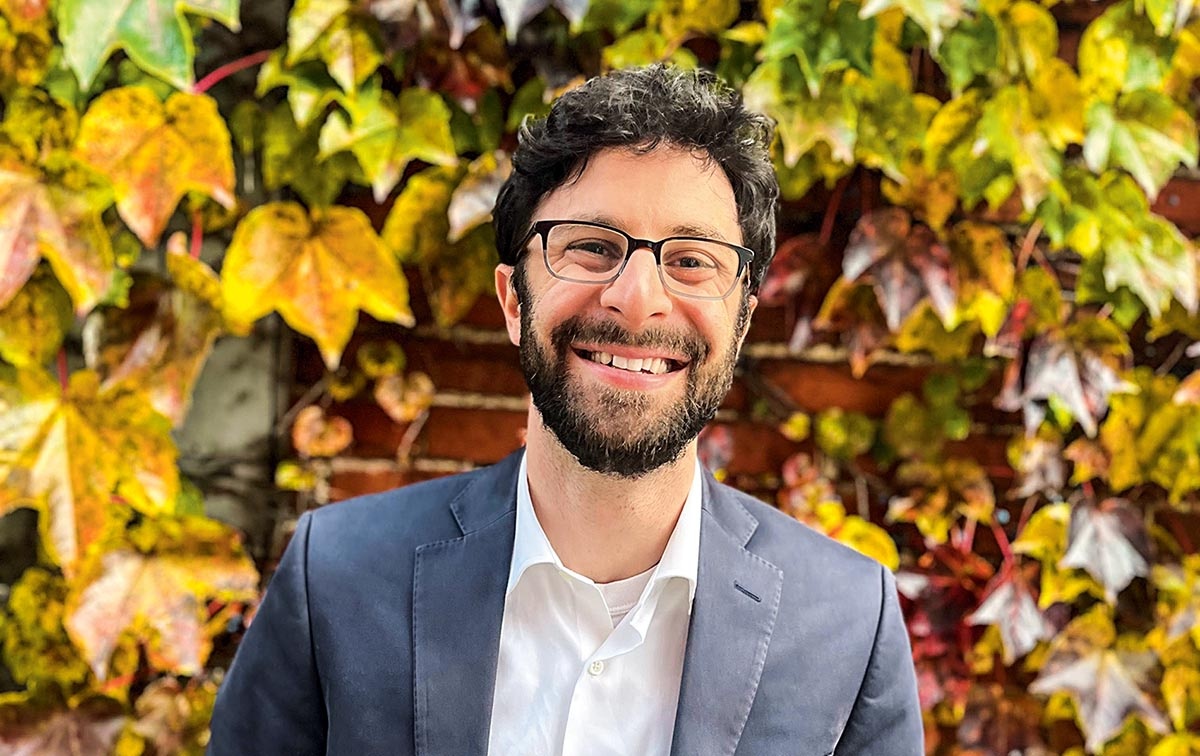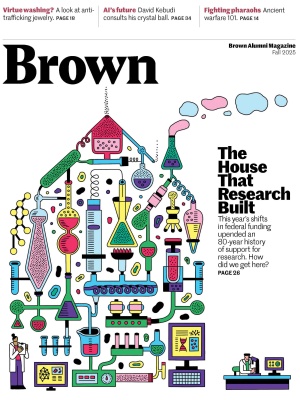Career After Cancer
Mentors help young cancer survivors get back on track
When Sidney Kushner ’13 was a Pittsburgh high schooler, his friend Lauren was diagnosed with cancer. “We didn’t see her at all anymore, as she was in and out of the hospital,” he says. She died his freshman year at Brown. “I wanted to do something in her memory,” he remembers. So that summer in Providence, he launched a small pilot program pairing young people undergoing or having survived cancer with older mentors in the fields the young people were interested in pursuing.
He expanded the pilot throughout Rhode Island his sophomore and junior years, then turned it into the nonprofit Connecting Champions. It operated only in the Pittsburgh area until 2020, when he took it national. Now, with $650,000 in funding from sources including hospital systems, insurance plans, foundations, and private donors, it has partnerships with three dozen hospital systems nationwide and up to 300 referrals a year for patients and survivors ages 4 to 39 in 28 states. “It’s the only job I’ve ever had,” he says.

He’s also published research showing that his program addresses a top concern of young people with cancer: that they miss out on crucial years of K-12 and post-secondary education, sometimes to the point that they fall behind their peers in schooling and careers. “Missing a critical period of your childhood, teen, or young adult years can have lifelong effects,” he says. “All your friends are passing you by.” Connecting Champions aims to make up for that by linking patients and survivors in a structured, usually year-long relationship with people (many of them fellow Brown alums) in fields they desire to enter, from jet propulsion scientists and small business owners to healthcare workers and bakers.
They even have a program where young survivors who don’t know what they want to do can learn about a variety of career pathways. Kushner mentions one young woman whose only career goal was to be like her grandfather, who was a military nurse. The program connected her with a healthcare worker from each branch of the military, sparking productive conversations that led her to apply to ROTC.
At the core of his nine-staffer program, says Kushner, is the realization that young cancer patients or survivors need something else to focus on and help define themselves with besides their illness. “Sad and solemn is the last way that they want to be seen,” he says. “While everyone around them is speaking the language of cancer, they want to be speaking the language of ethnobotany or cosmetology. So we bring mentors into their lives that help them speak that language.”





